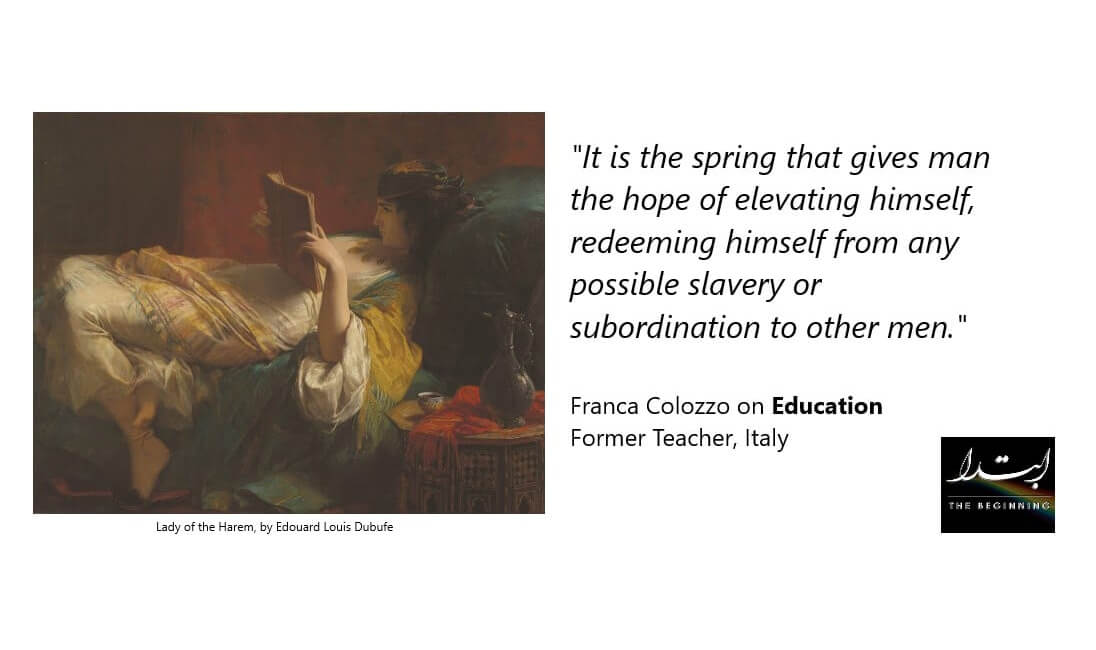
Self-improvement
By Franca Colozzo (Former Teacher, Italy)
Self-improvement is one of the most effective systems – especially in mature age and in these troubled times in which the pandemic has imposed social and scholastic distancing – to deepen one’s cultural biases and the education that has suffered due to the lockdown.
So how to enhance self-improvement? Using IT means that fortunately, modern technology has made available to us: Skype, YouTube, and zoom meetings were the most used tools during 2020.
For example, on a linguistic level, it is possible to increase one’s knowledge, even for free if you follow courses on YouTube at least in grammar and diction.
Just think also of the technology made available to elderly people and the possibility of lifelong education: the Lifelong Learning System is now in force and allows groups of professionals, the elderly, and people of all degrees and levels of education to be able to increase their own knowledge.
Because “You were not made to live like brutes but to follow virtue and knowledge …”.
“Facts were not to live like brutes …” in verse 119 of canto XXVI of Dante Alighieri’s Inferno; it is part of the speech that Ulysses addresses to his companions to encourage them to continue their journey beyond the Pillars of Hercules, the final border of the then known world. Ulysses concludes his passionate appeal thus:
“Consider your seed:
you were not made to live like brutes,
but to follow virtue and knowledge.”
That is, Ulysses asks his companions to think about their origin: they were not created to live as animals, but to follow virtue and knowledge.
After this mention of the culture of the great Italian poet, to whom so many schools in the world are dedicated, the poet par excellence, Dante Alighieri and his well-known “Divine Comedy”, the doors of knowledge open.
Self-learning is the motivation that makes man less slave and projects him towards a form of divine knowledge. It is the spring that gives man the hope of elevating himself, redeeming himself from any possible slavery or subordination to other men.
What should we ask, then, today after the pandemic and the resulting lockdown? Simply that the School, as a dynamic structure, modernize itself, changes in the sign of computerization. Obviously for age groups compatible with self-learning or distance learning, which can be an integration, never a replacement for face-to-face instruction. Following the directives of a technological school, but fundamentally human, I would say that up to an age group of fifteen / eighteen years it is desirable to learn in the presence of surrogate by self-learning (in the group of teenagers).
Self-study, indicated always and in any case, should go hand in hand with face-to-face instruction for the groups under 18; while starting from university education one can easily think of distance learning. Subsequently, the enrichment of self-learning is fundamental in order not to remain isolated from the dynamic social context. An example for everyone is an information technology and the use of new technologies: you have to keep up with the times to evolve rapidly.
Never say never: self-learning should be the basis of our sociological, anthropological, humanitarian evolution.
(Ibtidah team is very grateful to Franca Colozzo for contributing her thoughts on our question on the purpose of education )



